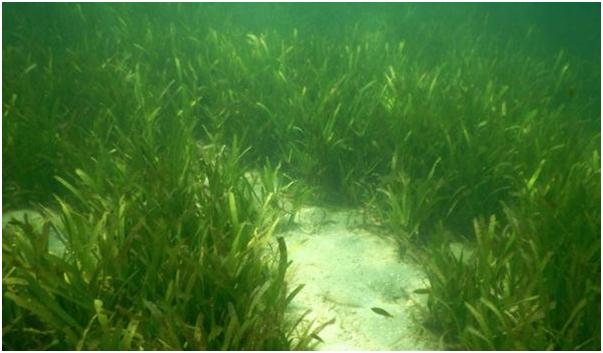Restoration of Seagrasses by Tamil Nadu at Gulf of Mannar.
- Posted By
10Pointer
- Categories
Environment
- Published
28th Oct, 2020
-
- Seagrasses are flowering plants that grow submerged in shallow marine waters like bays and lagoons.
- These have tiny flowers and strap-like or oval leaves.
- Seagrasses evolved from terrestrial plants that recolonized the ocean around 70-100 million years ago. They produce food by photosynthesis. They reproduce sexually as well as asexually.
- These are found in muddy and sandy substrates. These also occur along the coastal areas of India. These are abundant in the Palk Strait and Gulf of Mannar.
- These are also called ‘the lungs of the sea’ because they release oxygen into the water through photosynthesis.
- Sequesters up to 11% of the organic carbon buried in the ocean.
- Absorb carbon from the atmosphere. They can capture carbon from the atmosphere up to 35 times faster than tropical rainforests.
- Help maintain water quality and filter nutrients released from industries.
- Prevent soil erosion and provide food as well as habitat for fishes, octopuses, shrimp, blue crabs, oysters, etc.
- Seagrass beds are facing decline all over the world at the rate of 2-5% annually.
- Major threats to them include, grazing, storms, ice-scouring (abrasion and erosion of seabeds by glaciers), desiccation, eutrophication, mechanical destruction of habitat, overfishing, coastal engineering construction, etc.

